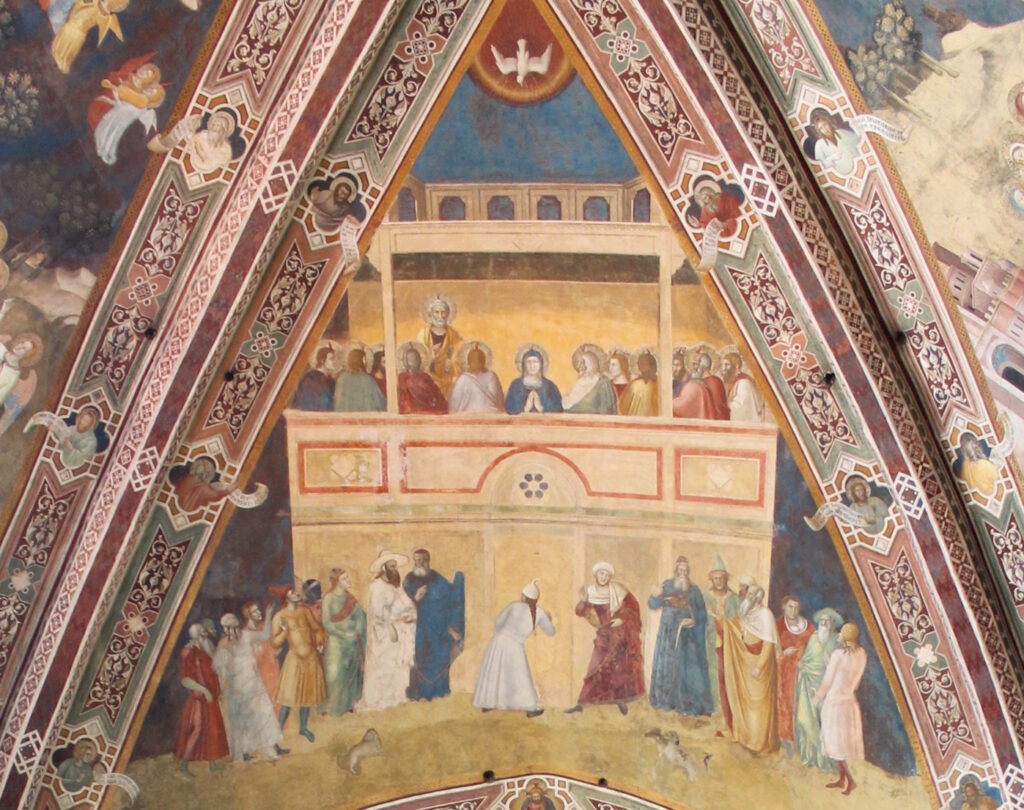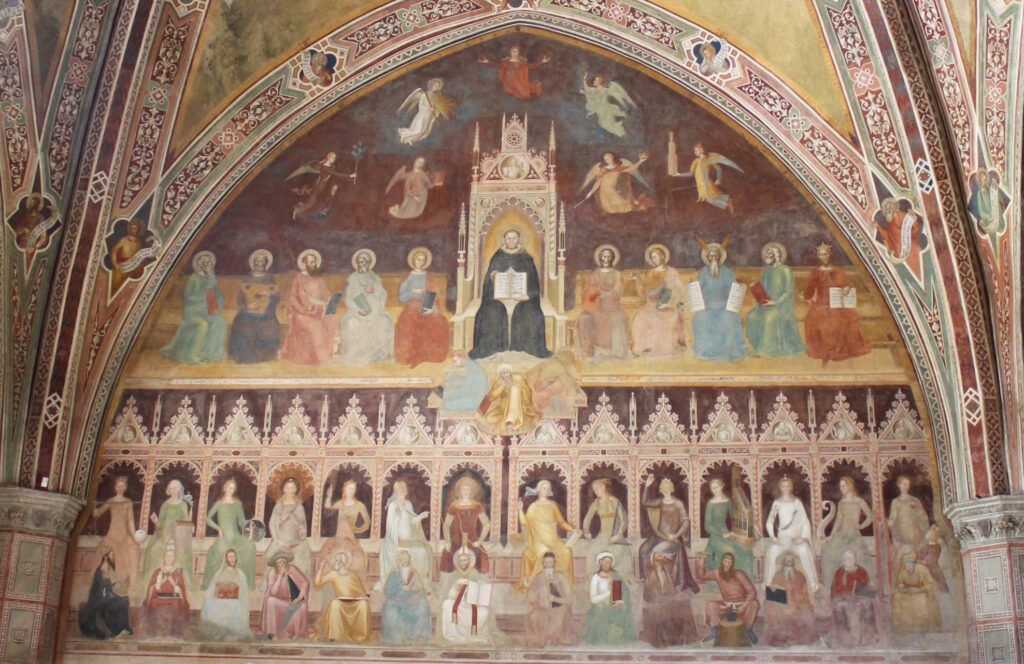I said, Ye are gods
Feast of Dedication. Jesus one with the Father.
(The Gospel History, Section 82)
Jesus answered them, Is it not written in your law, I said, Ye are gods?
I said, Ye are gods
(The Saviour of the World, Vol V Book V Poem LXVIII)


Of Thy sayings, Son of Man! Thou tak’st a word
Which those vindictive Jews have often heard,—
And, straight, an added star in heaven doth shine!
Godlike retort to all that captious twine
Of learning, logic, rivalry, that raged
As fire of hate in their breast, not once assuaged,
By the cool breath of truth’s discernment fine!—
“I am not God, ye say? Nay, gods are ye,
Children of the Most High in your vast power
Of Thought—to range all time in one short hour,
Of Love—to cherish the least things that be:
I come that ye may realise your dower
Of potent godhood—manifest in Me!”
St. John x. 34.
Psalm lxxxii. 6.
[1] La Filosofica Della Religione Cattolica
“Mr. Ruskin has done a great service to modern thought in interpreting for us the harmonious and ennobling scheme of education and philosophy recorded upon one quarter of what he calls the “Vaulted Book,”[*] i.e., the Spanish Chapel attached to the Church of Sta. Maria Novella, in Florence.
“The descent of the Holy Ghost is on the left hand (of the roof) as you enter. The Madonna and Disciples are gathered in an upper chamber: underneath are the Parthians, Medes, Elamites, &c., who hear them speak in their own tongues. Three dogs are in the foreground—their mythic purpose, to mark the share of the lower animals in the gentleness given by the outpouring of the Spirit of Christ. … On this and the opposite side of the Chapel are represented by Simon Memmi’s hand, the teaching power of the Spirit of God and the saving power of the Christ of God in the world, according to the understanding of Florence in his time.
“We will take the side of intellect first. Beneath the pouring forth of the Holy Spirit in the point of the arch beneath are the three Evangelical Virtues. Without these, says Florence, you can have no science. Without Love, Faith, and Hope—no intelligence. Under these are the four Cardinal Virtues … Temperance, Prudence, Justice, Fortitude. Under these are the great Prophets and Apostles. … Under the line of Prophets, as powers summoned by their voices, are the mythic figures of the seven theological or spiritual and the seven geological or natural sciences; and under the feet of each of them the figure of its Captain-teacher to the world.”
Our immediate concern is with the seven mythic figures representing the natural sciences, and with the figure of the Captain-teacher of each. First we have Grammar, a gracious figure teaching three Florentine children; and, beneath, Priscian. Next, Rhetoric, strong, calm and cool; and, below, the figure of Cicero with a quiet beautiful face. Next, Logic, with perfect pose of figure and lovely face; and beneath her, Aristotle—intense keenness of search in his half-closed eyes. Next, Music, with head inclined in intent listening to the sweet and solemn strains she is producing from her antique instrument; and underneath, Tubal Cain, not Jubal, as the inventor of harmony—perhaps the most marvellous record that Art has produced of the impact of a great idea upon the soul of a man but semi-civilised. Astronomy succeeds, with majestic brow and upraised hand, and below her, Zoroaster, exceedingly beautiful—“the delicate Persian head made softer still by the elaborately wreathed silken hair.” Next, Geometry, looking down, considering some practical problem, with her carpenter’s square in her hand, and below her, Euclid. And lastly, Arithmetic, holding two fingers up in the act of calculating, and under her, Pythagoras wrapped in the science of number.
The Florentines of the Middle Ages believed, not only that the seven Liberal Arts were fully under the direct outpouring of the Holy Ghost, but that every fruitful idea, every original conception, whether in Euclid, or grammar, or music, was a direct inspiration from the Holy Spirit, with no consideration as to whether the person so inspired named himself by the name of God, or recognised whence his inspiration came. It seems to me that there exists no better comment upon the saying, “I said, ye are gods,” than this expression of mediæval philosophy as embraced by the Church.
C.M.M.
[*] Mornings in Florence (Allen).
Subscribe: Apple Podcasts | Google Podcasts | Spotify | Amazon Music | Stitcher | RSS